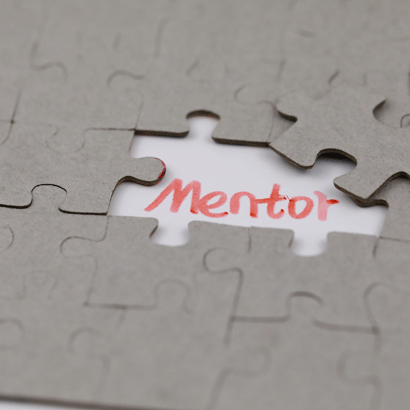
As park and recreation professionals, you often serve as mentors and role models for young people in our communities. Whether through formal mentoring programs, workforce development opportunities, season job programs, or other informal interactions in a recreational setting, you are often meaningfully involved in the lives of young people.
When youth have a caring and engaged person in their lives, they are 55 percent more likely to enroll in college1, 52 percent less likely to skip a day of school than their peers and maintain better attitudes towards school2. Mentoring also plays a role in preventing youth from engaging in risky behaviors: youth with mentors are 46 percent less likely than their peers to start using drugs3. Despite these encouraging benefits, unfortunately, one in three young people in the United States reaches the age of 19 without having a mentor of any kind1, including nine million at-risk youth who are missing out on the critical support and connections that mentoring can provide.
According to NRPA’s latest research report, 43 percent of agencies say they are currently offering mentoring programs, with another 29 percent of agencies interested in starting programs in the next two years. Agencies ranked social-emotional health of youth second only to physical inactivity as the biggest public health threat that they will address in the next three years.
That’s why every August, MENTOR — the National Mentoring Partnership — provides education and resources to boost advocacy efforts in support of the field’s policy priorities. Known as Advocacy August, MENTOR amps up its impact by sharing ways to get educated on how to be an effective grassroots advocate, learn more about MENTOR’s legislative priorities and take action today!
Advocacy August Resources
MENTOR’s Government Relations team developed resources to help the mentoring field build their advocacy skills. Equipped with knowledge and confidence, community members can use their skills to advocate effectively for policies that support mentoring programs and youth at the local, state and national levels.
These resources focus on the following areas:
- Grassroots advocacy
- The Foster Youth Mentoring Act
- Homework gap
- Inclusive mentoring
- Mentoring to Succeed Act
- Youth violence prevention
Youth Workforce Readiness Act
NRPA has been working with MENTOR and its other out-of-school time coalition partners to help pass the Youth Workforce Readiness Act (S.1696 / H.R. 3342) in the U.S. Congress. This bill creates federal investments and partnerships in youth workforce readiness that will build knowledge, skill development and learning experiences that prepare young people for the 21st-century workforce and boosts their economic potential over a lifetime. The legislation establishes a competitive grant through the Department of Labor’s Employment & Training Administration, for eligible national, youth-serving, out-of-school time organizations providing programs for youth between the ages of 6 to 18. Programs will focus on four overarching pillars that support youth workforce readiness:
- Essential-Skill Development: supporting social-emotional development through every developmental stage in both formal and informal learning experiences.
- Career Exposure: targeted programming, through community business partnerships, providing discovery opportunities, career assessments, planning, and insights into both traditional and non-traditional career fields.
- Employability & Certification: opportunities including interviewing, resume writing, financial literacy and certifications in specific areas that will help youth land their first job.
- Work-Based Learning: opportunities to apply skills in real-life, hands-on work experiences through local community business partnerships.
- Additionally, the legislation re-establishes Youth Councils to work in coordination with local workforce boards providing expertise in youth policy.
These investments will help increase opportunities for youth to build knowledge and skills, connect to the vital mentorships, real-life work experiences, and learning opportunities that can positively impact the course of their lives.
Other Important Legislation and Advocacy Campaigns
NRPA also supports other important pieces of legislation that support mentorship opportunities. Please see the links below to learn more about specific bills and proposals for expanding youth mentoring opportunities nationwide:
- Child Protection Improvements Act (CPIA)
- Foster Youth Mentoring Act
- The Chronic Absenteeism Reduction in Every School Act
- Transition-to-Success Mentoring Act
- The Mentoring to Succeed Act
- OJJDP Youth Mentoring Grant
Interested in joining a specific advocacy campaign? Here are a few to get started:
Together, we can advocate for a more inclusive, supporting mentoring community throughout the country. By raising our collective voices and sharing our experiences — both as mentors and mentees —— we can ensure that these vital programs are properly funded to reach more young people.
Lauren Kiefert, MPH (she/her) is an NRPA program manager.
Dan McCarthy (he/him) is NRPA's advocacy manager.
Elvis Cordova (he/him) is NRPA's vice president of public policy and advocacy.
Footnotes:
1. Bruce, M., & Bridgeland, J. (2014, January). The Mentoring Effect: Young People's Perspectives on the Outcomes and Availability of Mentoring. A Report for Mentor: The National Mentoring Partnership (ERIC Document Reproduction Service No. ED558065)
2. Kennelly, L., & Monrad, M. (2007). Approaches to Dropout Prevention: Heeding Early Warning Signs with Appropriate Interventions. Washington DC: National High School Center, American Institutes for Research.
3. Public/Private Ventures Study of Big Brothers Big Sisters. (1995). Retrieved from https://www.bbbs.org/research/


